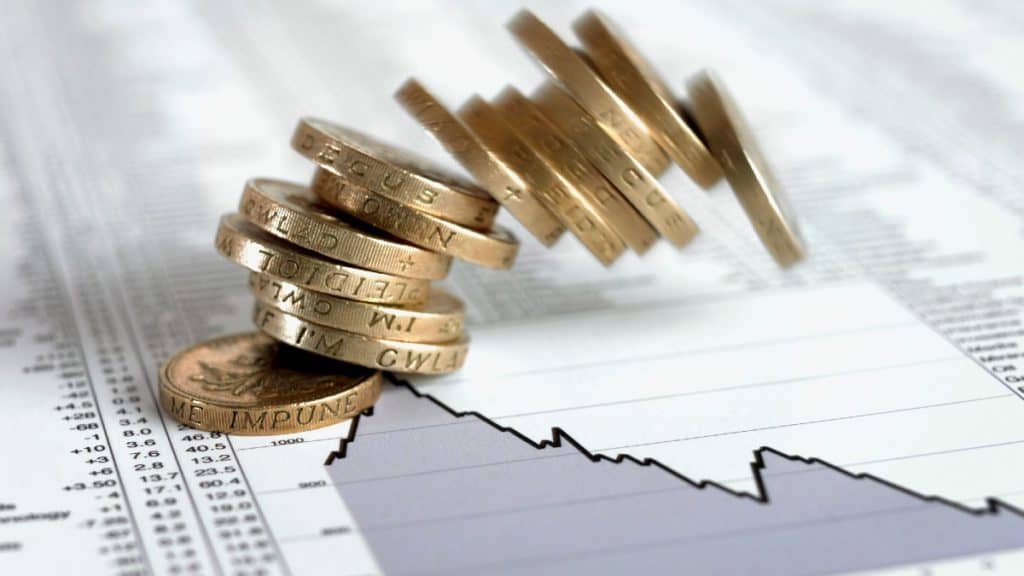Share this page:
At the end of September, the pound to dollar rate dropped to its lowest level since January! Worries about stagflation and supply chain issues drove the pound down to just $1.35 against the dollar.
But what does this mean for you and your money? I break down what is happening to the pound to dollar rate – and how this could impact your finances.
What is happening to the pound to dollar rate?
Sterling dropped to an eight-month low at the end of September. The markets got spooked (and we’re not talking about Halloween) by the big bad wolf – stagflation.
Stagflation is a term coined to describe a situation when prices and wages are on the rise but the economy remains sluggish. It comes as energy prices are surging and the UK faces a supply chain crisis.
Yet, it’s not only what’s happening in the UK that matters. Over in the US, the US Federal Reserve has hinted that it’s close to moving away from ultra-low rate and multi-billion dollar bond purchasing policies of late. And there has been a rise in US Treasury Yields, which helped attract investors to the dollar.
The pound has recovered some ground since the end of September, but investors are hedging their bets that there will be a further drop in the coming months.
What impact will this have?
Most of us don’t think about exchange rates until we head on holiday. But in fact, what’s happening with the pound to dollar rate can have an impact on your personal finances.
Firstly, when the pound weakens, the FTSE 100 actually tends to rise. This is because a large portion of the FTSE 100’s revenues come from overseas – in dollars.
So when the pound falls against the dollar, the dollar earnings can buy more pounds when exchanged back into sterling. This makes those revenues more valuable.
However, a weak pound is damaging for UK importers and manufacturers. And it can hurt those pesky supply chains we keep hearing about, as their purchasing power is reduced. This pushes inflation higher, making goods more expensive.
What does it mean for your investments?
It’s worth noting that the currency markets are quite volatile. FX trading carries quite a high risk because of how quickly things can change.
It’s interesting to know what’s happening with the pound to dollar rate in order to get a handle on how the economy is performing. But that doesn’t mean you instantly need to make financial decisions based on whether or not the pound has weakened.
The pound tends to underperform when markets are rocky. So it gives an indication of what is happening with investor sentiment. As a result, it tells you whether you need to do anything about your own investment portfolio.
Having said that, it’s usually better to invest with a long-term mindset. So only commit money that you won’t need in the next three to five years. This is because all investment carries risk, and previous performance does not guarantee future returns.
Generally speaking, having a well-diversified portfolio (geographically speaking) will insulate your money from currency movements.
Could you be rewarded for your everyday spending?
Rewards credit cards include schemes that reward you simply for using your credit card. When you spend money on a rewards card you could earn loyalty points, in-store vouchers airmiles, and more. MyWalletHero makes it easy for you to find a card that matches your spending habits so you can get the most value from your rewards.
Was this article helpful?
YesNo
About the author
Kate is a freelance writer who specialises in answering personal finance questions in the clearest way possible.
Share this page:
Some offers on The Motley Fool UK site are from our partners — it’s how we make money and keep this site going. But does that impact our ratings? Nope. Our commitment is to you. If a product isn’t any good, our rating will reflect that, or we won’t list it at all. Also, while we aim to feature the best products available, we do not review every product on the market. Learn more here. The statements above are The Motley Fool’s alone and have not been provided or endorsed by bank advertisers. John Mackey, CEO of Whole Foods Market, an Amazon subsidiary, is a member of The Motley Fool’s board of directors. The Motley Fool UK has recommended Barclays, Hargreaves Lansdown, HSBC Holdings, Lloyds Banking Group, Mastercard, and Tesco.
This post was originally published on Motley Fool



